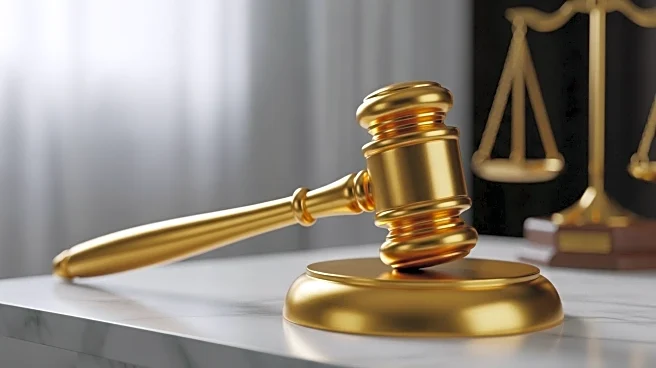What's Happening?
Justice Brett Kavanaugh has proposed renaming the Supreme Court's emergency docket to 'interim docket' during a conference at the US Court of Appeals for the Sixth Circuit in Memphis. This docket, often referred to as the 'shadow docket,' is used for issuing brief orders in pending cases without detailed explanations. Kavanaugh argues that the term 'interim docket' better reflects the nature of the cases handled, as not all are emergencies. He defended the Supreme Court's use of this docket, which has been frequently utilized by President Trump to advance his agenda amidst lower court resistance. Kavanaugh highlighted the challenges faced by the high court due to congressional inaction, which has led to increased emergency docket requests. He emphasized the importance of providing clear opinions for lower court judges interpreting these orders.
Why It's Important?
The rebranding of the Supreme Court's emergency docket to 'interim docket' by Justice Kavanaugh is significant as it addresses ongoing criticism regarding the lack of transparency in the court's decision-making process. The emergency docket has been a crucial tool for the Trump administration to implement policies despite legal challenges. This move could impact how the judiciary handles urgent cases and the perception of the Supreme Court's role in shaping policy. Lower courts have expressed frustration over the lack of detailed reasoning in emergency orders, which complicates their ability to apply Supreme Court decisions. Kavanaugh's proposal aims to clarify the nature of these orders and improve communication between the Supreme Court and lower courts.
What's Next?
Justice Kavanaugh's proposal may lead to discussions within the judiciary about the terminology and practices associated with the Supreme Court's emergency docket. The rebranding could influence how future cases are handled and perceived by both the courts and the public. Stakeholders, including legal experts and political leaders, may weigh in on the implications of this change. The Supreme Court may consider adjustments to its procedures to address concerns about transparency and the impact of its decisions on lower courts. Continued dialogue between justices and lower court judges could foster better understanding and cooperation in handling urgent legal matters.
Beyond the Headlines
The debate over the Supreme Court's emergency docket highlights broader issues of judicial independence and the balance of power between different branches of government. Critics argue that the use of the emergency docket undermines the independence of lower courts and bypasses traditional legal processes. Justice Kavanaugh's proposal to rename the docket reflects an effort to address these concerns and improve the court's image. The discussion also raises questions about the role of the judiciary in responding to executive actions and the potential for political influence on judicial decisions. As the Supreme Court navigates these challenges, the outcome could have lasting effects on the U.S. legal system and its approach to urgent cases.










